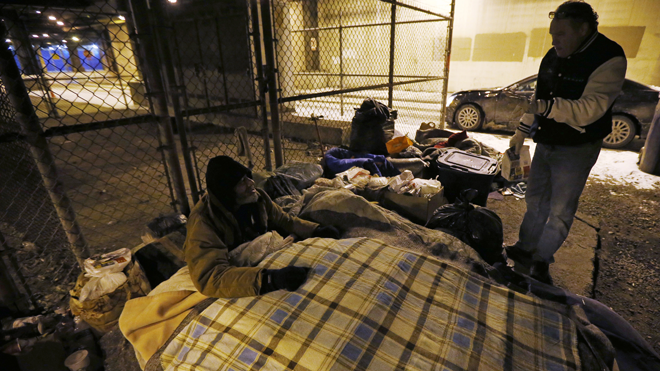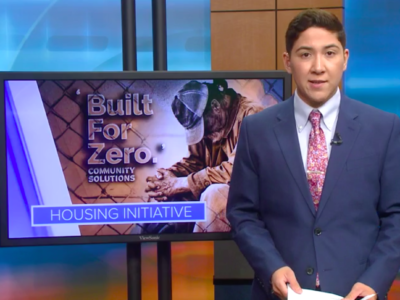
Four years ago, an initiative called 100,000 Homes was launched by the non-profit Community Solutions with the aim of placing 100,000 chronically homeless people in permanent housing. The deadline was July 2014 — and today, the movement has surpassed its goal and says this milestone is saving taxpayers an estimated $1.3 billion annually across 238 U.S. communities.
“It’s significantly cheaper to house this group of people than leave them alone on the streets,” explained Jake Maguire, director of communications for the 100,000 Homes Campaign. “We’ve found that chronically homeless people, who are about 12% of the homeless population, make up 80% of the total government costs spent, from emergency room visits to jail time…. We are wasting a huge amount of money in this country keeping these people homeless.”
It’s important to differentiate between the types of homelessness. According to the U.S. Department of Housing and Urban Development, as of January 2013, there were approximately 610,000 people sleeping on America’s streets on any given night. In the last estimate, there were 92,000 chronically homeless, who are homeless for more than a year or homeless four or more times in the last three years and are considered to be the most vulnerable.
A cost-savings assessment, conducted by Liana Downey and Associates, a strategic advisory firm to 100K Homes, found that while some costs go up when permanent housing is found for the chronically homeless, they are outweighed by the costs that decline. For example, while payments to the Department of Social Services rose an average of $3,800 a year, in-patient hospital costs declined by an average of $8,000 per person.
The savings appear to be real, so much so that investors are buying into the idea.
Denver, Colorado, believes so strongly in ending the perpetual cycle of the chronically homeless bouncing between the streets and emergency rooms that in June the city announced a new $8 million program aimed at helping this group that is being funded in an unusual way. Investors provide the funding through “social impact bonds” and are paid back, with interest, if the effort saves the city money elsewhere.



